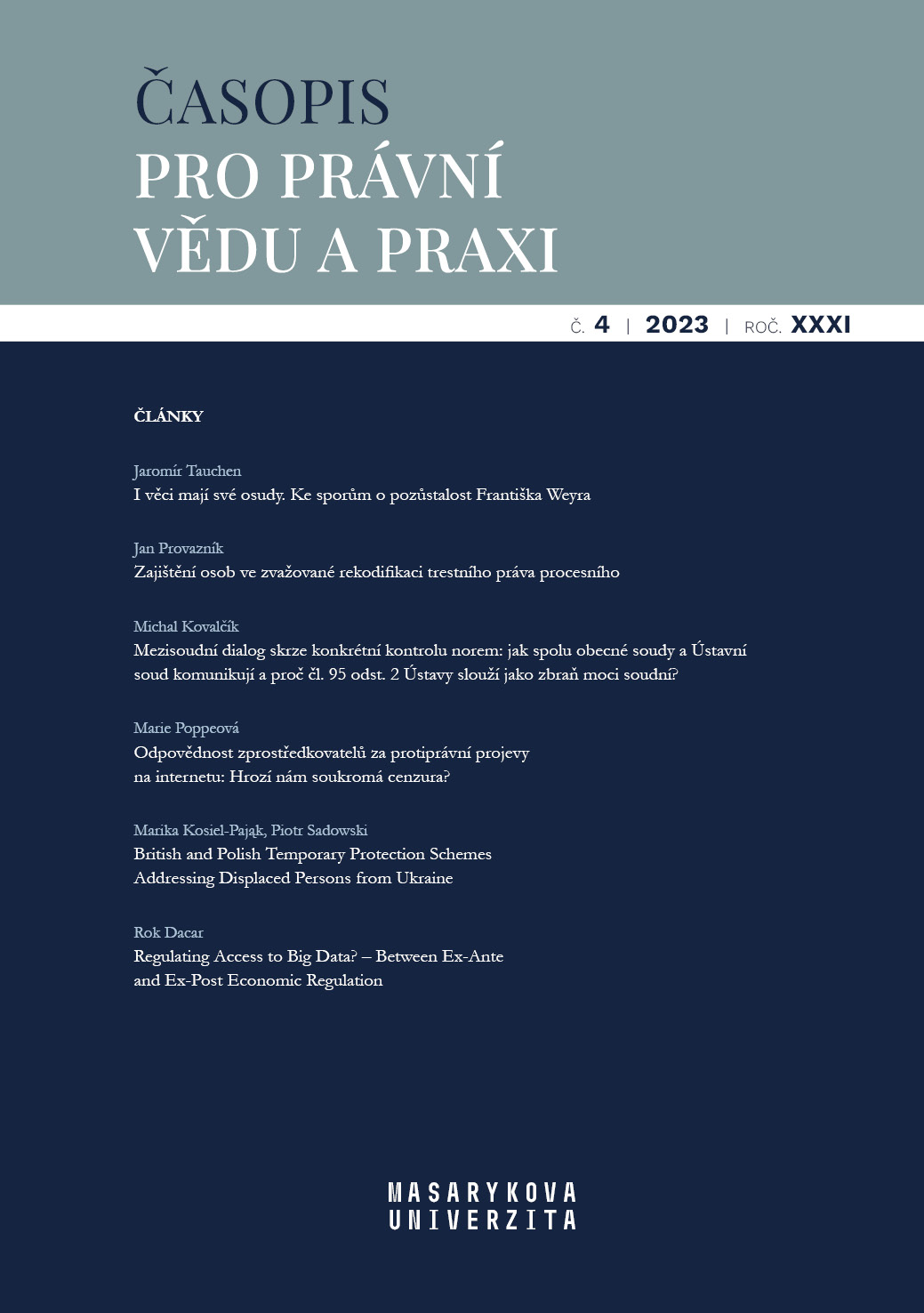Mezisoudní dialog skrze konkrétní kontrolu norem: jak spolu obecné soudy a Ústavní soud komunikují a proč čl. 95 odst. 2 Ústavy slouží jako zbraň moci soudní?
Judicial Dialogue Through Constitutional Referrals: How do Ordinary Courts and the Constitutional Court Communicate with Each Other and Why does Article 95(2) of the Constitution Serve as a Weapon of the Judiciary?
Author(s): Michal KovalčíkSubject(s): Constitutional Law
Published by: Masarykova univerzita nakladatelství
Keywords: judicial dialogue; ordinary courts; constitutional referrals; democratic decay; The Czech Constitutional Court; Collaborative Constitutionalism
Summary/Abstract: The mechanism of constitutional referrals under Article 95(2) of the Constitution is an important instrument shaping the relationship between the Constitutional Court and the general courts. The article provides the first comprehensive analysis of this mechanism. The analysis is three-layered – it includes a traditional doctrinal analysis, a contextual analysis with respect to the separation of powers, and finally an empirical quantitative analysis. Through a combination of different methods (and perspectives), the aim is to provide a plastic picture of how the Article 95(2) mechanism works and can work. The article shows that Article 95(2) serves as a platform for judicial dialogue on constitutional issues and also that it can be used as a self-defence mechanism of the judiciary. It also criticizes that the restrictive interpretation that the Constitutional Court has espoused in some decisions virtually excludes a certain group of norms from concrete review and hinders constitutional dialogue. The contribution of the text also lies in the presentation of the first empirical data on the functioning of constitutional referrals in Czechia.
Journal: Časopis pro právní vědu a praxi
- Issue Year: 31/2023
- Issue No: 4
- Page Range: 835-860
- Page Count: 26
- Language: Czech

